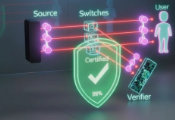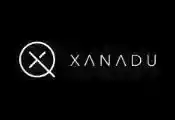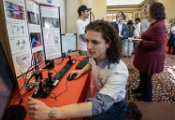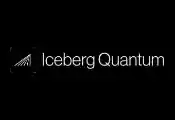QunaSys Releases QURI SDK, a Software Platform Supporting Quantum Algorithm Research for the FTQC Era
October 29, 2024 -- QunaSys, a global leader in quantum software development, announced today the launch of QURI SDK, an innovative research and development platform designed for the fault-tolerant quantum computing (FTQC) era. As quantum technology advances, there is an increasing interest in researching FTQC algorithms. However, substantial technical demands have created considerable obstacles to accessing this technology. QURI SDK aims to overcome these challenges and promote the practical use of FTQC by providing a comprehensive research platform that integrates the latest architectural and algorithmic advancements.
Recent rapid developments in quantum technology have led to increased efforts to apply FTQC towards industrial use. However, there are two major challenges associated with using this new technology:
Challenges in Understanding the Most Advanced Quantum Algorithms and Circuits:
As FTQC technology progresses, quantum algorithms and circuits are becoming more sophisticated and complex. This requires not only a deep understanding of quantum computing and quantum error correction theories but also advanced knowledge and skills for designing circuits that incorporate fault-tolerant techniques, which go beyond the current quantum computing technology (NISQ).
Complexity Due to New Technical Layers:
Quantum computing with error correction codes requires building FTQC architectures based on highly complex theories. To evaluate the performance of algorithms and circuits operating on FTQC, it is essential to understand the characteristics of the architecture. This has proved to be challenging for many non-experts due to the intricate nature of FTQC theory.
QURI SDK addresses these challenges by providing an environment where researchers can pursue FTQC-related research without requiring deep quantum technology expertise.
Features of QURI SDK
QURI SDK comprises three main libraries designed to support advanced algorithm research required in the FTQC era. It offers seamless support for everything from designing algorithms in fields such as chemistry and Computer-Aided Engineering (CAE) to evaluating performance on FTQC architectures. By treating current and future quantum computers as virtual machines, the platform provides a unique research experience where the researchers feel as if they were operating actual hardware and creates a continuous development environment adaptable to the evolution of quantum computing.
1.QURI Algo: QURI Algo provides a framework for encoding domain-specific issues as quantum algorithms. The initial release supports such methods as energy calculations and Hamiltonian dynamics, addressing challenges in chemistry and physics. Quantum algorithms constructed with QURI Algo are independent of specific quantum architectures or devices, allowing for broad applicability.
2.QURI VM: QURI VM virtualizes FTQC architectures and quantum devices, assisting with the construction, evaluation, simulation, and execution of algorithms through an integrated interface. It supports performance evaluation on both current and future devices, with the initial release covering major architectures such as Clifford+T and STAR architectures.
3.QURI Parts:As the foundational library, already available as open source, QURI Parts has been updated to efficiently perform large-scale quantum circuit transpilation, optimization, and noisy simulation for the FTQC era. Combined with the high-performance quantum circuit simulator Qulacs, it provides an enhanced R&D experience
QURI SDK is offered as an open-source software library. In the future, extensions for research and development using high-performance computing (HPC) resources such as supercomputers and GPUs will be available as advanced options.
Tennin Yan, CEO of QunaSys, commented, ‘With the release of QURI SDK, we are removing the barriers to FTQC algorithm research and providing an environment where quantum technology can be utilized by a broader range of researchers. By seamlessly connecting algorithms and architectures, QURI SDK is poised to make the industrial application of quantum computers a reality and serve as a vital foundation for driving new breakthroughs.’
QunaSys is dedicated to reinforcing its leadership in quantum computing and spearheading technological innovation that transforms industries.




































